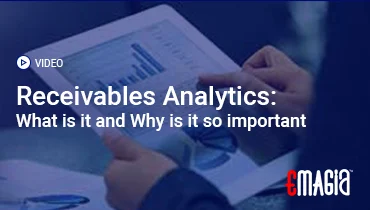For decades, the accounting and finance professions have been defined by precision, a meticulous attention to detail, and a heavy reliance on manual processes. From reconciling ledgers to creating financial reports, the work was often time-consuming, repetitive, and prone to human error. But a revolution is underway, and its engine is artificial intelligence. AI is no longer a futuristic concept; it is a present-day reality that is fundamentally reshaping the financial landscape. It is not about replacing human professionals but about empowering them with the tools they need to move beyond simple data entry and into the realm of strategic decision-making. By automating mundane tasks, providing real-time insights, and predicting future trends, AI is transforming accounting and finance from a backward-looking function into a proactive, intelligent, and value-driven powerhouse. The question is no longer if your organization will embrace this technology, but rather, “how can you effectively use AI for accounting and finance to unlock a new level of efficiency and strategic foresight?”
This comprehensive guide will take a deep dive into the practical applications of AI in accounting and finance. We will explore the specific ways AI tools and platforms are being used to automate routine tasks, enhance accuracy, and provide deeper insights than ever before. We will break down the key areas of the finance function that are being transformed by AI, from accounts payable and receivable to forecasting and fraud detection. Our goal is to provide a clear, actionable blueprint for businesses and finance professionals who are ready to embrace this new era. We will show you how to move beyond theoretical discussions and into a real-world implementation that will save time, reduce costs, and create a powerful competitive advantage. The future of accounting and finance is not a distant possibility; it is a present-day opportunity, and AI is your key to unlocking it.
Understanding the Core Principles of AI in Accounting and Finance
Before diving into the specific applications, it is crucial to understand the foundational principles that make AI so transformative in the finance domain. AI is a broad field, and its impact on accounting and finance is a result of several key technologies working in concert. These technologies are what allow AI to go beyond simple automation and into the realm of true intelligence.
Machine Learning (ML)
Machine learning is the branch of AI that allows systems to learn from data without being explicitly programmed. In accounting, ML algorithms can analyze thousands of historical transactions to identify patterns and anomalies. For example, an ML model can learn to automatically categorize expenses, match invoices to purchase orders, and even predict a customer’s likelihood of paying on time. The more data the system processes, the more accurate and intelligent it becomes, continuously improving its performance over time.
Natural Language Processing (NLP)
Natural Language Processing (NLP) is the technology that allows computers to understand, interpret, and generate human language. In finance, NLP is used to extract data from unstructured documents like invoices, receipts, and contracts. An NLP-powered system can read an invoice, identify key fields like the vendor name, date, and amount, and then automatically enter that data into the accounting system. This technology eliminates the need for manual data entry, which is a major source of errors and inefficiency.
Robotic Process Automation (RPA)
Robotic Process Automation (RPA) is a technology that uses software robots to automate repetitive, rule-based tasks. In accounting, RPA bots can be programmed to perform a wide range of tasks, from reconciling bank statements and processing invoices to generating routine reports. RPA is often the first step for many businesses on their AI journey, as it provides immediate efficiency gains and frees up human employees from mundane work.
Practical Applications of AI in Accounting and Finance
The theoretical power of AI becomes a tangible reality when you apply it to specific, real-world finance functions. The following sections will detail how AI is being used today to solve long-standing challenges and create new opportunities across the entire finance department. This is where the magic happens, as AI transforms complex and manual processes into streamlined, intelligent workflows.
Automating Accounts Payable and Expense Management
Accounts Payable (AP) has traditionally been one of the most manual and labor-intensive functions in finance. AI is changing that by automating the entire process from invoice receipt to payment. An AI-powered AP system can automatically capture invoice data, validate it against purchase orders, route it for approval, and schedule the payment. This not only dramatically reduces processing time and costs but also minimizes the risk of human error and fraud. The system can even use AI to detect duplicate invoices or unusual payment requests, flagging them for human review. Similarly, for expense management, AI can automatically categorize receipts, match them to credit card transactions, and flag any out-of-policy spending for a manager’s attention. This level of automation ensures compliance and provides real-time visibility into a company’s spending.
Revolutionizing Accounts Receivable and Collections
Getting paid on time is critical to a business’s cash flow, and AI is revolutionizing the Accounts Receivable (AR) and collections process. AI-powered AR platforms use predictive analytics to identify which customers are most likely to pay on time and which are at risk of delinquency. The system can then prioritize collections efforts, sending out personalized and automated reminders via email or SMS. This proactive approach significantly reduces Days Sales Outstanding (DSO) and improves cash flow predictability. For cash application, AI can automatically match incoming payments to open invoices, even when a single payment covers multiple invoices or includes deductions. This level of automation is critical for reducing unapplied cash and ensuring a clear audit trail.
Enhancing Financial Reporting and Analytics
Financial reporting has always been a core function of the finance department, but it has often been a backward-looking exercise. AI is changing this by providing real-time, forward-looking insights. AI-powered analytics tools can ingest data from multiple sources—including ERP systems, CRM platforms, and external market data—to generate dynamic, real-time reports. Instead of spending hours compiling data, finance professionals can use AI to ask natural language questions and get immediate answers. Furthermore, AI can provide predictive insights into a company’s financial health, helping leadership to forecast revenue, manage liquidity, and make data-driven decisions about future investments and strategic initiatives.
Improving Auditing, Compliance, and Fraud Detection
AI is a game-changer for auditing and compliance, as it can analyze 100% of transactions with consistent accuracy and speed. Instead of relying on manual sampling, auditors can use AI-powered tools to identify anomalies, irregularities, and suspicious patterns that could indicate fraud. The system can flag unusual transactions, such as a large payment to a new vendor, for human review. This proactive approach to fraud detection is far more effective than traditional methods. For compliance, AI can automate the process of monitoring financial records for adherence to regulations and can even assist in the preparation of tax filings by identifying relevant deductions and credits, ensuring accuracy and reducing risk.
The Impact on Finance Professionals: A Shift to Strategic Roles
The rise of AI in accounting and finance is not about making human professionals obsolete. On the contrary, it is about liberating them from mundane, transactional tasks so they can focus on higher-value activities. The role of the finance professional is evolving from that of a data processor to a strategic advisor. Instead of spending time on data entry and reconciliation, finance teams can now focus on business analysis, providing strategic advice to leadership, and engaging in more meaningful, forward-looking work. This shift not only makes the profession more engaging and intellectually stimulating but also makes finance an even more critical part of a company’s success.
The Role of Emagia in AI for Accounting and Finance
While the benefits of using AI for accounting and finance are clear, implementing a comprehensive, end-to-end solution can be a complex challenge. This is where Emagia, a leader in AI-powered financial automation, can play a pivotal role. Emagia’s platform is not just another piece of software; it is a complete, autonomous finance suite designed to handle the entire Order-to-Cash lifecycle. It is used by some of the world’s largest companies to achieve a new level of operational excellence. The Emagia platform leverages cutting-edge AI and machine learning to provide predictive insights into credit risk and collections, automate complex cash application, and streamline deductions and dispute resolution. It seamlessly integrates with any ERP system, providing a single source of truth for all your financial data. The platform’s intelligent workflows ensure that a collections strategy is not static but continuously optimizing based on real-time data and customer behavior. By partnering with Emagia, organizations can move from a reactive, manual finance process to a proactive, intelligent, and profitable engine of cash flow, ensuring that their financial operations are not just efficient but a source of strategic advantage.
FAQs
What is the primary benefit of using AI in accounting and finance?
The primary benefit is the automation of routine, repetitive tasks, which leads to significant time savings, improved accuracy, and a reduction in operational costs. This frees up finance professionals to focus on more strategic, high-value activities like analysis and business advisory.
Will AI replace accountants and finance professionals?
No, AI will not replace accountants and finance professionals. Instead, it will change their roles. AI will take over the manual, transactional work, allowing human professionals to focus on strategic planning, data-driven decision-making, and complex problem-solving. It is a tool for empowerment, not replacement.
How does AI help with fraud detection in finance?
AI helps with fraud detection by analyzing vast amounts of data in real-time to identify unusual patterns and anomalies that a human might miss. For example, it can flag a payment to a new vendor in a different country or a series of small, rapid transactions that deviate from a customer’s normal behavior, alerting a human to a potential fraud risk.
Can a small business use AI for accounting?
Yes, many modern accounting software solutions and platforms are integrating AI features that are scalable and affordable for small businesses. These tools can automate tasks like data entry, expense categorization, and bank reconciliation, providing the same benefits of efficiency and accuracy that larger enterprises enjoy.
What skills do I need to learn to use AI for accounting and finance?
To effectively use AI in the finance domain, professionals should focus on developing skills in data analysis, strategic thinking, and technological literacy. Understanding how to interpret AI-generated insights, manage data, and work with AI-powered tools will be more valuable than the technical skills of the past.



